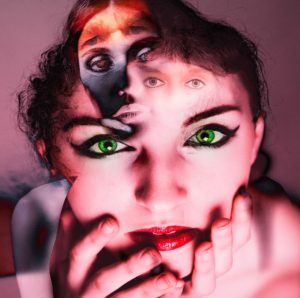
I’ve been hearing a lot about depression today from various sources, some people asking what the difference is between sadness and depression, some wondering if people have to live with it as a life-long illness, and some just wondering what steps to take.
Depression is nothing necessary to cause shame, but it’s nothing to take lightly either. If someone’s feeling sad, they’re not necessarily depressed. We all get sad and have sad days sometimes, or we all have events or thoughts that trigger sadness.
 My mom died a couple of years ago. I was sad, and I cried a lot. Sometimes when I watch a movie or an emotionally triggering show, it might make me sad. Even though my children can feel frustrating, I feel a little sad sometimes at the thought of them growing up and not being kids anymore, or if I see a picture from five years ago, I might feel a sad sentiment at the notion that those days have passed.
My mom died a couple of years ago. I was sad, and I cried a lot. Sometimes when I watch a movie or an emotionally triggering show, it might make me sad. Even though my children can feel frustrating, I feel a little sad sometimes at the thought of them growing up and not being kids anymore, or if I see a picture from five years ago, I might feel a sad sentiment at the notion that those days have passed.
Depression, on the other hand, involves a cluster of symptoms, including sadness, occurring over at least a two week period. Just one period of time with this is called a Major Depressive Episode, while recurrent depression can be called Major Depressive disorder.
Symptoms have to include either sadness or not enjoying the things that you usually enjoy, but others can be mixed in as well, including eating less or more than usual, sleeping less or more than usual, moving slowly, gaining or losing weight, fatigue, difficulty concentrating, thoughts about death or suicide, and / or attempts at suicide.
I’ve had two or three major depressive episodes in my life, and once upon a time got on Prozac to help myself out. My girlfriend thought I’d zombied out too much with it, but she didn’t complain very much, or maybe I was too out of it to notice complaining.
The episodes aren’t fun, and I can remember in the midst of them feeling like I was lost in a fog. I worried at the time that I wouldn’t get out of the fog. I didn’t see light at the end of the tunnel, and I actually never realized that I’d ended the tunnels until long after.

It was like grieving. I looked back and realized that I hadn’t been depressed for a while—that I’d begun living and had forgotten about the difficult times.
Some people live with that their whole lives, and have to rely on the encouragement of others to continue. Others have similar illnesses—bipolar disorder for example, where people trade ecstatically energetic phases for depression. I could imagine that the contrast between the depressive phase and the manic phase would make depression seem all that more depressing.
As a therapist, I certainly present clients with all the options I can when it comes to overcoming the illness. We go through coping skills, possible doctors or psychiatrists, changes in eating or exercising, negative beliefs—you name it.
It can be a tough thing to live with, both on those with the illness, and their loved ones. They need the best possible supports and reasons to keep fighting. The more so they feel, the more likely they are to at some point have left the fog and be able to look back wondering where it went.
